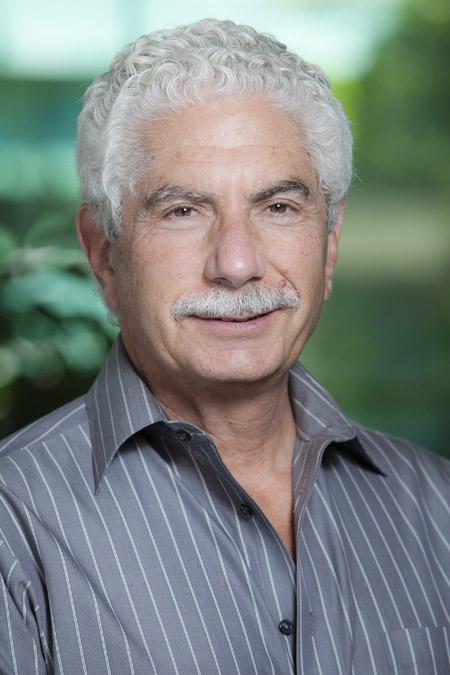
Credit: UC San Diego Health
The National Cancer Institute (NCI) has awarded David Cheresh, PhD, Distinguished Professor and vice chair of Pathology at University of California San Diego School of Medicine, with a $4.2 million Outstanding Investigator Award to continue his research into cancer’s ability to overcome stress, gain drug resistance and metastasize.
The Outstanding Investigator Award provides long term support to accomplished leaders in cancer research who have been making significant contributions toward understanding the disease and developing applications that may lead to advances in biomedical, behavioral or clinical cancer research. It provides funding of $600,000 in direct costs per year over a seven-year period.
“It is quite an honor to have this level of support from the National Cancer Institute and be recognized among many worthy scientists in the field of cancer research,” said Cheresh, associate director of innovation and industry alliances at UC San Diego Moores Cancer Center, San Diego’s only NCI-Designated Comprehensive Cancer Center. “The resources that the Outstanding Investigator Award provides researchers flexibility and the opportunity to think outside of the box.”
Cheresh joined Moores Cancer Center in 2005. He is renowned for his research in the study of angiogenesis — the growth of new blood vessel tumors. He also studies signaling networks that regulate tumor growth, drug resistance and metastasis. Cheresh successfully translated laboratory discoveries into biologically-based drugs that are now in various stages of clinical development. One of his discoveries was recently approved by the United States Food and Drug Administration as a frontline therapy for neuroblastoma, a type of cancer found in immature nerve cells.
“The NCI Outstanding Investigator Award addresses a problem that many cancer researchers experience: finding a balance between focusing on their science while ensuring that they will have funds to continue their research in the future,” said Dinah Singer, PhD, director of NCI’s Division of Cancer Biology. “With seven years of uninterrupted funding, NCI is providing investigators the opportunity to fully develop exceptional and ambitious cancer research programs.”
In prior work, Cheresh identified the molecule ανβ3 — a receptor on the surface of tumor-associated blood vessels — as a critical biomarker of angiogenesis. He also found this molecule was expressed on drug-resistant, aggressive tumor cells in patients with lung, breast and pancreatic cancer. With funding from the NCI, Cheresh intends to look deeper into ανβ3 and determine how this molecule is used by tumors to gain resistance to cancer therapy and become highly metastatic.
“Normally, when tumors first develop they are relatively treatable if you detect them early enough. The problem is that over time the tumor adapts to a stressful tumor microenvironment or to the drugs used to treat it, allowing cancer cells to become more aggressive and highly metastatic,” said Cheresh.
“Typically, tumors are devoid of oxygen, nutrients or exist in highly oxidative state, all of which represent environmental stresses that tumor cells can adapt to. We have been asking: How do tumor cells adapt to these stresses? It turns out that tumor cells are not that different from normal cells undergoing wound repair. In both cases, the cells find themselves in a highly stressful microenvironment and develop ways to adapt and survive in that microenvironment. During tissue repair, this adaptation leads to tissue remodeling and repair while in the tumor this process tends to increase tumor progression and drug resistance.”
Cheresh discovered that ανβ3 is upregulated on various cells during normal wound repair and in cancer cells as cancer becomes invasive. In both cases, this molecule triggers cells to enter a stress-tolerant state. In normal epithelial cells, this state enables them to initiate tissue remodeling. In cancer, it allows cells to become drug-resistant and highly metastatic, Cheresh said.
“We want to find a way to perturb the malignant cell version of wound repair. Our initial results are encouraging since we have found pathways that are actionable with new or existing drugs. In fact, clinical trials are underway to determine if an appropriate combination of targeted therapy can eradicate highly drug-resistant cancers,” said Cheresh.
“In preclinical models we’re using a novel immune therapeutic approach to attack ανβ3 expressing tumor cells and this seems to eliminate the most drug-resistant, aggressive cells in the tumor. Our goal is to move this approach to the clinic as soon as possible.”
###
Media Contact
Yadira Galindo
[email protected]
858-249-0456
News source: https://scienmag.com/




